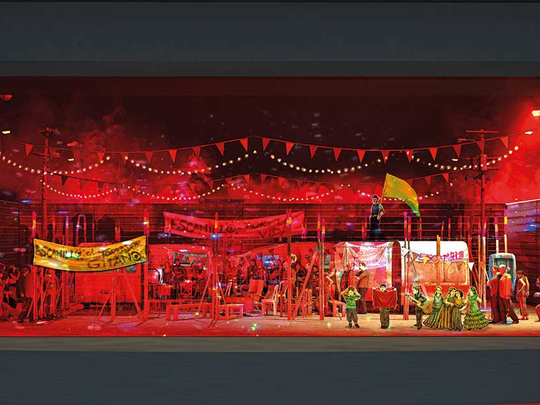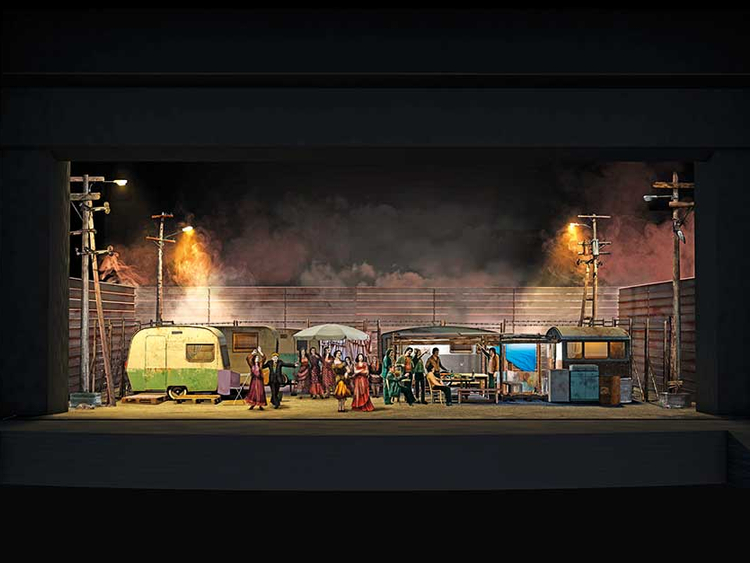
In as stand against violence to women, an Italian production of Bizet’s Carmen has been given a new ending — instead of the heroine being stabbed to death, she kills her tormentor. This version — where Carmen, the beautiful gipsy, shoots Don Jose, her thwarted admirer, with a pistol that she grabs off him — will open at Florence’s opera house this weekend, with the first few nights already sold out. “As far as we know, it is the first time that the ending to Carmen has been changed,” the opera house’s Paolo Klun told The Daily Telegraph. “We think it’s important that the theatre should not be a conservative place of musical culture, it should not be a museum. It’s a place where debate can be initiated. Carmen was written 150 years ago in a very different cultural context. Times change.” The producers said they had changed the denouement in part to protest at the large number of Italian women who are killed each year by husbands, boyfriends and lovers. So frequent are such murders that Italians have a name for the phenomenon — femminicidio, or femicide. With horrific cases of domestic violence coming to light almost every month, the directors of the work said they were uncomfortable with the idea of audiences applauding the final scene, in which Carmen is stabbed to death and lies motionless on the stage. “At a time when our society is having to confront the murder of women, how can we dare to applaud the killing of a woman?” said Cristiano Chiarot, the head of the opera house, the Teatro del Maggio Musicale Fiorentino. “I believe one can remain faithful to the spirit of the opera while taking certain liberties, as happened in classical times, when there were various versions of the most famous myths, without their original meaning being compromised,” he said. Leo Muscato, the opera’s director, was initially resistant. “The death of Carmen is the engine that drives the opera. Why reverse the situation?” he said. “Then I understood that what Chiarot was calling for was reasonable. The theme of death in the opera has a strong masculine element — the woman must sacrifice herself in order to save her freedom. It is a point of view that today makes no sense.” Although he wrote Carmen in 1875, Georges Bizet set the drama against the exotic backdrop of Spain in the 1830s. The directors of the Florence version have taken a similar step back in time, setting the opera in a ramshackle, litter-strewn Romany gipsy camp on the edge of an Italian city in the Eighties. Carmen makes ends meet by working in a factory, while Don Jose is an abusive police officer. In Bizet’s original story, Don Jose is a naive soldier who is lured away from his military duties and his childhood sweetheart by the fiery gipsy girl. But she then falls for Escamillo, a handsome bullfighter, driving Don Jose wild with jealousy. The last act of the opera is set outside the bullring in Seville, where Carmen is stabbed to death by Don Jose.











